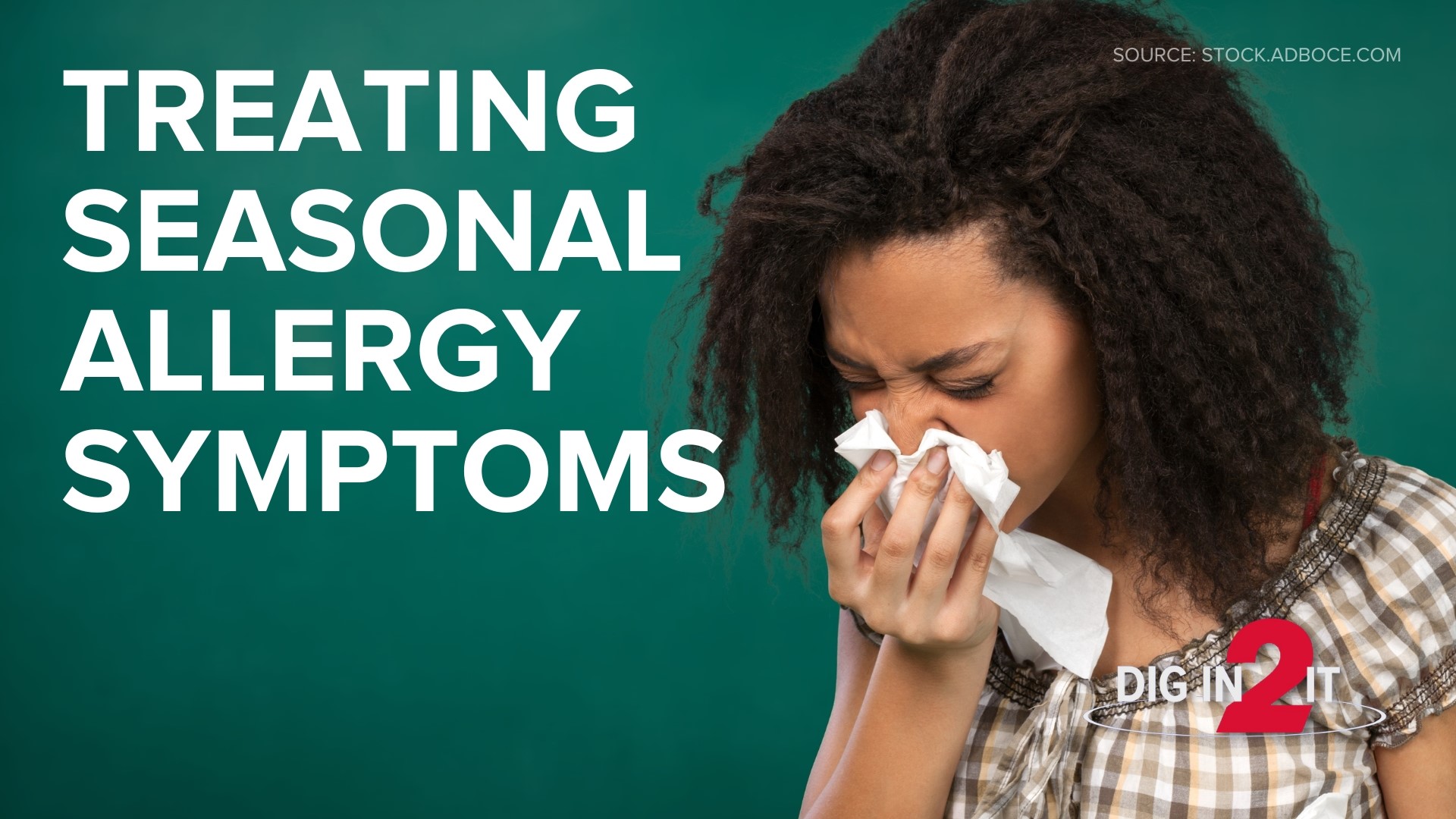GREENSBORO, N.C. — WFMY News 2 's Meteorologist Christian Morgan says the recent spring-like temperatures have ramped up tree pollen production, and we've already heard several people complaining about allergy symptoms.
We went to Dr. Joel Gallagher with Cone Health's Allergy and Asthma Center of NC to find out what you can do to feel better.
Treating Allergy Symptoms
For the first line of defense, Dr. Gallagher recommends over-the-counter antihistamines.
"We're very fortunate to have some really good options that you can just get over the counter without a prescription," Dr. Gallagher said.
Dr. Gallagher said some patients have reported their allergy medication stops working after a few months. He said it's a phenomenon referred to in the medical field as "tacky phalanxes."
"Essentially, your body gets used to seeing this drug in its system. So it does several things, it can either rev up some of your enzymes that break down the medication faster so it's not as effective as long as it used to be, or your receptors could actually decrease for the medication so they're not as responsive that way," Dr. Gallagher explained.
He said there's really no set recommendation for when you should change your brand of medication, but he did provide one system you can go off of.
"Just go ahead and switch every two to three months. Get whatever is on sale that time that you go to the drugstore essentially," Dr. Gallgher continued.
If you find yourself taking allergy medication year-round, Dr. Gallagher says you should look for another way to treat your symptoms.
"If it is a daily thing during the rest of the year, you might need to see an allergist to figure out other treatment plans such as allergy shots or particular avoidance measures," Dr. Gallagher said.
Reducing Allergen Exposure
Dr. Gallagher said another way to manage your allergy symptoms is by reducing your exposure to allergens.
"We'd love to be outdoors during this time of the year, especially with these warm days that are teasing us but coming inside, changing your clothes, taking showers after you've gone on a long hike. All of those things can certainly decrease your pollen exposure," Dr. Gallagher said.

